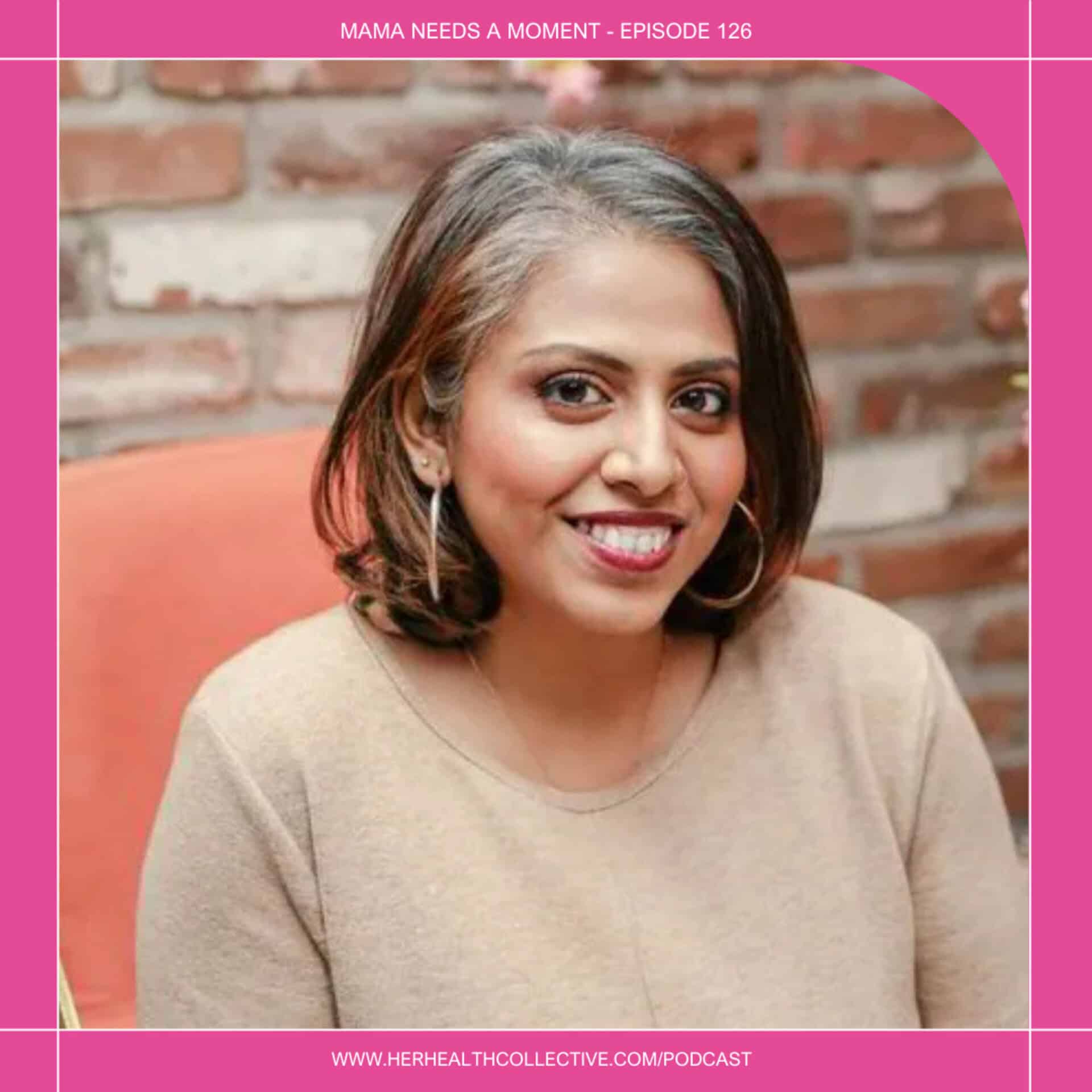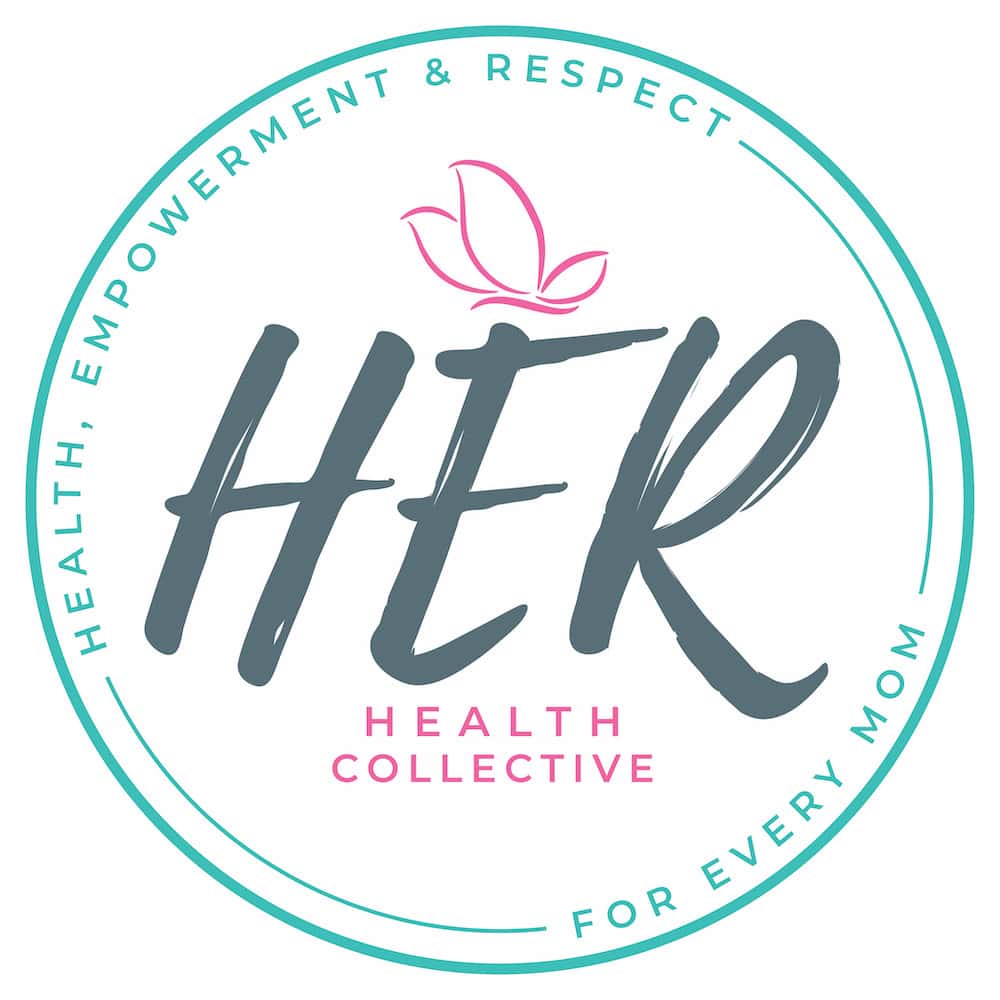Show Notes:
Many women assume that if they’ve conceived before, getting pregnant again will be easy—until they face unexpected struggles. In this episode of Mama Needs a Moment, we sit down with Dr. Aumatma Simmons, a naturopathic doctor and fertility expert, to uncover the root causes of secondary infertility. From hormonal imbalances and nutritional depletion to the impact of emotional trauma and the vaginal microbiome, Dr. Simmons shares a holistic approach to improving fertility. She also emphasizes the importance of evaluating both partners’ health and explains how proactive care can make conception more likely. Whether you’re currently trying to conceive or simply want to better understand your reproductive health, this conversation is packed with essential insights.
Tune in to learn how a personalized, science-backed approach can help restore balance and boost your chances of a successful pregnancy. Don’t forget to subscribe and take a moment for yourself today!
These are the top three things you will learn from this podcast episode:
The Hidden Causes of Secondary Infertility: This segment explores how previous pregnancies can impact fertility, delving into hormonal imbalances, nutritional depletion, emotional trauma, and oxidative stress that can hinder conception.
The Importance of a Holistic and Comprehensive Approach: Dr. Aumatma advocates for evaluating both partners’ health, emphasizing the significance of hormone levels, nutritional status, and the vaginal microbiome in optimizing fertility.
Proactive Steps to Improve Fertility: Listeners will receive actionable guidance on restoring hormonal balance, replenishing vital nutrients, and utilizing vaginal microbiome testing and probiotics to enhance the chances of conception.
Episode Notes and Resources:
Follow Dr. Aumatma on Instagram: https://www.instagram.com/holisticfertilitydoctor
Support Mama Needs a Moment! Become a patron through our Mama Needs a Moment Patreon.
HER Circle – https://www.herhealthcollective.com/membershipSupport Mama Needs a Moment! Become a patron through our Mama Needs a Moment Patreon.on.
Transcript:
Crissy
Today, We are diving deep into the world of fertility hormones and the incredible power of womb wisdom with our guest, Dr amutma Simmons. Dr amutma is a naturopathic doctor with nearly two decades of experience, a recognized expert in holistic hormone health, and the author of the best selling book fertility secrets, what your doctor didn’t tell you about baby making over the years, she has helped bring 1000s of healthy babies into the world, and has made it her mission to educate and empower women with knowledge about their bodies. But her work doesn’t stop at fertility. She is also a passionate about teaching female entrepreneurs how to align their business with their natural cycles, avoiding burnout and embracing their creative power. We are so excited to have you here with us today, Dr. Aumatma, thank you for joining us.
Dr. Aumatma Simmons
Thank you for having me. I’m very excited.
Cindi
Well, specifically we’re talking infertility, but we are actually going to narrow it way down, because there is so much to talk about in this particular area. We are going to be talking about struggling with secondary infertility. Infertility is a super important topic in and of itself, but I don’t feel like secondary infertility gets much attention, and so it’ll be really great to have you talk about this with us today. So why do some women get pregnant easily with certain babies and not when they’re trying to have subsequent pregnancies? Can you tell us a little about that?
Dr. Aumatma Simmons
Yeah, you know, I was thinking about this this week, and we have a lot of moms in our community who already have babies and are trying for baby number two or three, and they never see it coming, right? Like, it just hits them in their face, and they’re like, wait, what? Like, this was not the plan I had the first one, and now it’s like, 12 months later, I need to have baby number two. But I think that there are several things that I think we can peel back the layers.
One, is a lot of women never recover their hormones after baby number one or two, whichever one it was. So like, our cycles are fine. We get pregnant easy, and then in the recovery phase, there’s not much attention being paid to our hormones. And our hormones kind of continue to teeter and stay out of whack in some ways, even if we have regular cycles, and that’s really important, right? Like, I’m seven years postpartum and I still am like, yeah, I just have too much estrogen. Like, I know what that feels like, and I know that my ovulation has moved up a few days, so we need more awareness around that piece.
The second is, I say this with all the love in my heart, these babies are parasites, and they’re sucking out all of our nutritional content. So if you have had one baby, two, three, I met a woman yesterday who’s had seven babies, and I was like, Whoa, I would love to see what your nutritional status looks like. You know, like you have been through so many children that your body is depleted in so many ways. So I think that’s the second factor.
And then the third, of course, is probably what most women already come in saying, which is, oh, I’m older now, so that must be why I’m struggling. And for me, I don’t necessarily buy into the age thing as the only reason. So I put it to the side with like, well, you’ve already had one child. We need to evaluate and see if you are, let’s say 3,4,5, years older. Then, yeah, maybe that’s a factor. But what are the things that are happening under the surface that are contributing to the age being the issue, and that’s often things like oxidative stress and the lack of sleep, and maybe we breastfed and kind of gave more of our nutritional nutrients away, only to not feel replenished. And kind of like the mom burnout, which is so real, and we don’t talk about it enough, right? Especially with baby number one, it’s like, you have a child and then all of a sudden your mom, and you’re like, Oh my God, wait, what? Like, I can’t even, I don’t even have time to shower, like, let alone like, think about how I’m gonna make a new child.
So there’s just so much in there that I think we’re not paying attention to. And I think so many of our moms that come in for a subsequent child, they’re depleted. They’re coming in burnt out, depleted, not sleeping. Their circadian rhythms are all out of whack. If we can, like, work on those things, then the likelihood goes way up of being able to get pregnant again.
Cindi
And I’m assuming that this also is pertinent to if you have a miscarriage, because your body still has accumulated all of these hormones. Is that true?
Dr. Aumatma Simmons
It’s true in many ways. And I think miscarriage is a big term, and it can vary a lot, so I will say, if we separate it out with like chemical pregnancies, which do affect hormones and are going to have a little bit of a nutritional impact, but are not going to be as severe to recover from as someone who’s made it through or close to the first trimester, or like in the second trimester, and it’s the same idea, like our hormones are still shifting, even if you were only pregnant for nine weeks, a lot of women will say, but oh, that one wasn’t that long, right? And I’m like, Well, you can’t just write it off. That had a huge impact on your body.
And then you’re adding another layer to it, which is the emotional trigger of loss, and you haven’t fully grieved. We actually specialize in recurrent pregnancy loss. So there are so many women that are in this boat of having been through multiple losses and their body is viscerally like going into fear mode when they get pregnant again, and that can re trigger all of the emotions and trauma and potential loss again. So it’s all of those things, and we add this additional layer of emotional trauma and grief.
Crissy
I so appreciate that you touch on both the hormonal piece, the physical piece, the sleep piece, and then also that emotional piece, and the role that that plays. And I think it’s important to note that it’s so individual for every person that is struggling with fertility, there’s so many factors going into it that, being said and knowing that, what can a woman do to support her body with fertility when time is of the essence? Is it about balancing the hormones? It’s are there other pieces that can go into that?
Dr. Aumatma Simmons
I think that most of the time, evaluation, or what we call in our practice, reveal, which is, let’s get to the root of what’s happening for you specifically, I did forget, I’m so sorry. I forgot to mention that there’s also the male piece of this, which is, you get pregnant and then they’re like, done, right? The guy is like, Oh, great, I’m off duty. And he does whatever he wants for the nine or 10 months. And then, like, a year of that first baby, he’s kind of not taking care of himself that much. The dad just…
Crissy
Skating on through…
Dr. Aumatma Simmons
Yeah, and like, a lot of guys are actually experiencing testosterone drops during that first year of baby’s life. So if their testosterone declines, then their sperm counts have also gone down. So we have to think of it like this is you guys as a couple, and we really need to evaluate where you are now.
So a lot of women will come and say, Oh, but it’s not him, because he’s already had a child, and the child’s like, 11 years old. And I’m like, yeah, that tells me nothing, absolutely nothing. It has no impact on what’s happening right now. We have to make sure that we’re evaluating the guys as much as the ladies, and we evaluate them from this holistic perspective of what could be happening. Let’s do some testing. Let’s test the hormones, let’s test the nutrients, let’s test the vaginal microbiome.
A lot of women, and I went through this also, a lot of women will get antibiotics during the birth which is very, very common, and the antibiotics are killing the vaginal microbiome. And there’s so much research on how that microbiome is going to impact whether or not you’re going to be able to get pregnant. And I call it essentially like, do you have the Pro fertility microbes? Or. Anti fertility microbes. And if you have a bunch of these anti fertility microbes, you are now at, again, a bigger detriment, because you have the wrong vaginal microbes that are going to support you being able to get pregnant and stay pregnant.
So there are just so many of these factors that our first step is like, let’s just do an evaluation. Let’s figure out if the nutrients are an issue. Let’s figure out if the hormones are an issue, and then based on what we figure out, then we can say, Okay, now that we’ve got the data, now we can put into place, like, let’s create a roadmap, or let’s create an actionable step by step of what it’s going to take for you guys and how long it’s going To take you to get pregnant. Sometimes that timeline doesn’t match with what the couple wants, unfortunately, right?
Like if you breastfeed for a year, and then you start addressing all of your hormones and things like that. Usually we can do it in like four to five months, is the average. We can reset the body and be like, okay, great, go get pregnant again. So ideally, they’re going to be pregnant, like, six months later, and then they’ll have that baby another nine, nine and a half months later. So that timeline is a little bit longer than a lot of people want, and they’re like, Oh, but I wanted to plan and have my kids right close to each other. And I’m like, Okay, well, you can go and try and we can see what happens. But unfortunately, like that, go and try is actually a slower path most of the time, if we just test up front and we’re like, Hey, you’re clear. Go, like, you don’t need us. Go get it. Then that’s fine. And they’re gonna get there faster, because now we’ve addressed any of the underlying things, or we’ve said, Hey, you’re good, you’re in the clear. There’s nothing to address, so it’s gonna be fine. Like, take your needle and you’re good.
Crissy
One would almost think that that should be a part of women’s health care, just on the front end, at a certain age, becomes something we look at. Wouldn’t that be a grand idea? I want to backtrack just a little bit to the vaginal microbes, because I got stuck there in my head. Okay, that’s not something I’ve really heard mentioned in a lot of spheres around infertility, if someone did discover that that was something they were struggling with. I mean, do you just take a probiotic, put a cream on it? Is that like something a doctor can help you with?
Dr. Aumatma Simmons
Well, a lot of doctors don’t test for this, so it’s a relatively new field. Most OB/Gyns are not going to be interested. Some are testing like cervical microbiome, which is higher up, it has its own microbiome. And then there’s we’re not testing this yet, but every part of the female circuit has its own microbes. So it’s very fascinating. But the vaginal microbiome is where a lot of the research is, and it’s really easy to do, right?
So you do a swab, you send it to the lab, they give you a report, and the lab that we’re using tests 5000 species of microbes. So it’s really extensive. We don’t miss anything from doing that. And granted, there isn’t research on every single microbe right now, but they have a database of all of these. I think it’s like they’re doing DNA, PCR or something or other. So they have, like, the DNA of all of these different microbes to see, is there a match? And then the protocol can vary. It depends on how many microbes you have. Are they susceptible to different antibiotics? Are they going to be susceptible to herbals?
A lot of people would prefer not to use antibiotics, so we kind of like to walk through the process with them and say, okay, based on what you have, we know that these microbes are susceptible to these specific antibiotics, which it’s already testing. We can use the antibiotics for a short period of time. It’s usually like a five to seven day protocol. We kill all the microbes in there, and then we repopulate with only the good stuff, and that is a probiotic. It’s not the probiotics that we get over the counter. It’s very specific vaginal microbiome probiotics.
There is one probiotic that’s gotten really popular, and I see it on social media all the time. Some famous doctor created it, and I was very excited, until I was like, Are people testing this out? How’s it going? Do we like it? And our practitioners were like, Oh no, I’m in the chat group. And, like, literally every single person’s having reactions. And I was like, Oh my God, that’s unusual, right? Like, on the surface, it looks great, it has all the right ingredients, but it’s not quite hitting the spot. So we’re kind of like, still in the research phase of what’s working, what’s not working, and can we get people on something that works in a short period of time.
So usually we’re looking at like a 14 day protocol for killing and then repopulating, and then where it gets tricky is sometimes people will have a recurrence, so it improves and then it crashes. It improves and then crashes. So we sometimes have to go through multiple cycles of that protocol to make sure that we got it, and it’s actually like, the good stuff’s gonna stick.
Cindi
Let’s create a hypothetical situation. Let’s pretend that I had a baby nine months ago, and I’m interested in starting to try for another baby. Would you recommend that I come see you or your clinic, someone in your clinic, proactively? Or do I start trying before I come and see you? How long should I wait between trying for another baby after having one?
Patreon
A huge shout out to our Patreon subscribers. Your support truly means the world to us. Thanks to you, we are able to continue the weekly production of Mama needs a moment and getting this valuable information from these incredible guests out to you our listeners. This final question has been recorded as a bonus and is available for our Patreon subscribers to go listen to right now. Be sure to log into your Patreon account and have a listen. If you’re not a subscriber, we’d love to have you. The link is in the show notes.
Crissy
Thank you so much. Dr Aumatma, we really appreciate your time.
Dr. Aumatma Simmons
It’s so great to be with you both, and thank you for having me.


